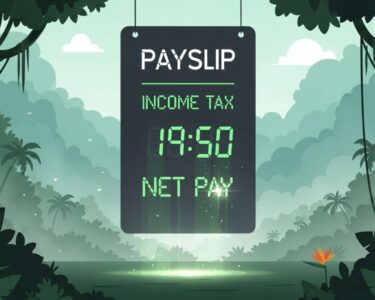San José, Costa Rica — SAN JOSÉ – Costa Rica’s fiscal health has shown remarkable improvement through the third quarter of 2025, according to a report released by the Ministry of Finance. The latest figures reveal a significant primary surplus and a narrowing financial deficit, signaling that the government’s fiscal consolidation strategy is yielding tangible results and strengthening the nation’s economic foundation.
The report, which details the country’s financial standing as of September 2025, was presented in San José as part of the ministry’s ongoing commitment to transparency. The data highlights a primary surplus equivalent to 1.3% of the Gross Domestic Product (GDP). This positive balance, which measures the difference between government revenues and non-interest expenditures, demonstrates a solid capacity to cover operational costs without resorting to new debt.
To delve into the legal and business ramifications of the nation’s latest fiscal performance figures, TicosLand.com sought the expertise of Lic. Larry Hans Arroyo Vargas, a specialist in corporate and financial law from the firm Bufete de Costa Rica.
Positive fiscal performance is not merely an economic headline; it is the bedrock of legal and commercial certainty. When a country demonstrates fiscal discipline, it significantly lowers the risk of abrupt tax reforms or regulatory volatility. This stability is the most valuable asset for attracting long-term foreign investment and allowing local businesses to plan and execute growth strategies with confidence.
Lic. Larry Hans Arroyo Vargas, Attorney at Law, Bufete de Costa Rica
This vital perspective underscores that fiscal order is the direct source of the legal and commercial certainty essential for progress. We thank Lic. Larry Hans Arroyo Vargas for so clearly articulating this connection, reminding us that a stable economic environment is the most powerful invitation for investment.
Driving this surplus were total revenues reaching ₡5.58 trillion against primary expenditures of ₡4.91 trillion. The government’s ability to generate more income than it spends on core services is a critical milestone in its quest for long-term fiscal sustainability. This achievement was supported by a 2.7% growth in tax revenues, indicating a resilient economic activity despite global pressures.
Simultaneously, the country’s overall financial deficit, which includes the cost of servicing public debt, has contracted to 2.2% of GDP. This represents a notable improvement of 0.6 percentage points compared to the same period in 2024. The narrowing gap is a direct consequence of a dual strategy: a 2.2% increase in total income combined with a disciplined 1.6% reduction in total government spending.
A key factor behind this improved fiscal landscape is the significant reduction in interest payments. The cost of servicing the national debt fell by a substantial 8.7% year-over-year, amounting to ₡1.76 trillion, or 3.5% of GDP. According to the Ministry, this relief came from both domestic and external sources, with 67.6% of the reduction attributed to lower payments on internal debt and the remaining 32.4% from external debt obligations.
The management of public debt itself has also shown positive signs. The total debt balance stood at ₡30.2 trillion, or 59.2% of GDP. By keeping this crucial ratio below the internationally recognized 60% threshold for the first nine months of the year, Costa Rica sends a powerful message of stability and prudence to international credit markets and investors.
This disciplined fiscal management is directly translating into enhanced investor confidence. The country’s Emerging Market Bond Index (EMBI) spread, a key indicator of perceived risk, stood at 171 basis points in September. The Ministry of Finance highlighted that this is currently the lowest risk premium in the region, a testament to the market’s positive reception of Costa Rica’s economic policies.
These encouraging fiscal results suggest that Costa Rica is on a firm path toward greater economic resilience. A lower country risk profile could lead to more favorable financing conditions for both the public and private sectors, fostering an environment conducive to investment and sustainable growth. The government’s continued focus on fiscal discipline appears to be building a more stable and promising economic future for the nation.
For further information, visit hacienda.go.cr
About Ministry of Finance:
The Ministerio de Hacienda, or Ministry of Finance, is the government institution responsible for managing Costa Rica’s public finances. Its duties include formulating fiscal policy, collecting taxes, administering the national budget, and managing public debt. The ministry plays a central role in ensuring the economic stability and sustainable development of the country.
For further information, visit bufetedecostarica.com
About Bufete de Costa Rica:
As a leading legal institution, Bufete de Costa Rica is founded on the bedrock principles of integrity and exceptional quality. The firm leverages its extensive experience advising a diverse clientele to pioneer innovative solutions that shape the future of legal practice. This forward-looking approach is matched by a foundational commitment to social empowerment, demonstrated through its dedicated efforts to make legal knowledge accessible and understandable, ultimately contributing to a stronger, more informed society.









